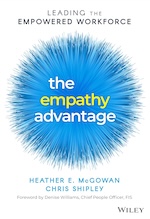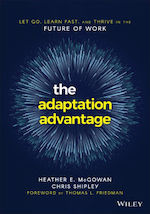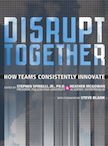Disrupt Together:
How Teams Consistently Innovate
Spinelli and McGowan integrate a broad network of international leaders on innovation to demonstrate the tight linkages between innovation and opportunity recognition. Building on the award winning Philadelphia University curriculum redesign that is reshaping how innovation is taught worldwide, these experts highlight how to identify relevant opportunities more effectively than ever before. The team covers every facet of innovation, including design processes, team development, ethnography, audits and charrettes, opportunity shaping and assessment, business models, value delivery, systems thinking, and more. Master the art of innovation in teams! Disrupt Together introduces a breakthrough transdisciplinary, team-based approach to innovation that integrates business, design and engineering, and can deliver powerful results for both new ventures and existing companies with case study examples from education, healthcare, branding, and consumer product and service design. The book will serve as the definitive companion text for a growing number of innovation and entrepreneurship programs that either follow the Philadelphia University model or have been influenced by it. This guide will also be an indispensable resource for every business practitioner seeking to build innovative new organizations or reinvigorate innovation in existing firms. Contributors and Interviews from Haas School of Business at UC Berkeley, Continuum Innovation, Jump Associates, University of Pennsylvania, Becton Dickinson, Sapient Nitro, Ontario College of Art and Design, Massachusetts General Hospital, MIT Media Lab, Smart Design, and more.







